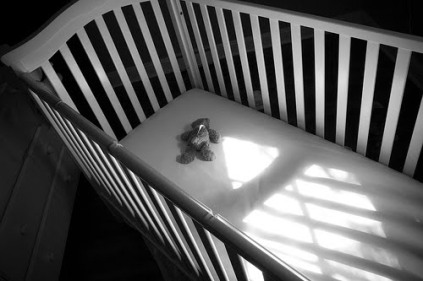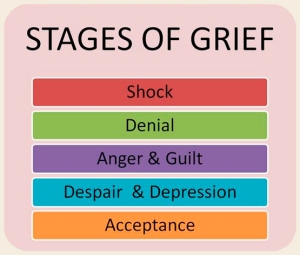The Silence of Miscarriage
Because of a recent Facebook post, I was surprised to discover how many people I know—personal friends—who have suffered the loss of a child through miscarriage. I didn’t know.
So this is a blog for people just like me.
-

PHOTO CREDIT: https://www.flickr.com/photos/marchands/1506955778/ Those of us who have never lost a child through miscarriage.
- Those of us who have never gone from great joy and anticipation to the depths of fear when the ultrasound technician said, “I need to get the doctor.”
- Those of us who have never wondered what we did wrong—physically or spiritually—to cause a miscarriage.
- Those of us who have never suffered in silence because most people didn’t even know you and your spouse were expecting.
- Those of us who don’t know what it’s like when your friends are having babies and all you have is a memory.
A few months ago, I wrote a piece on death: The Topic Most People Avoid. A friend thanked me for the post. He said it got him thinking about the miscarriage of his first child. “I have a million thoughts and questions about that baby and our lives following its death. Have you considered writing about the loss of a child that was never born?”
Frankly, I hadn’t. This friend was the only one I knew who had dealt with a miscarriage—and I only knew that because he had just told me.
I greatly respect this friend, so I decided to look into it. That’s what led to my Facebook inquiry: “If you’ve ever lost a child through miscarriage and are willing to talk about, send me a private message.” After only one hour, I was flooded with messages from friends—both men and women—who were willing to talk.
So here I am now with pages and pages of stories and emotions. (Two of them had never shared their story with anyone.) I have tried to find the common link in their stories and grief, but everyone’s experience was different.
- Their ages and marital status
- The circumstances at the time of the miscarriage
- The causes of the miscarriage
- The health and development of their children
- The support of their families, friends, or churches
- Their responses to the miscarriage
No two stories were similar, but several things caught my attention—things helpful for “the rest of us” to know.
1. Grief is real.
Those of us who have never experienced such a loss can’t imagine what it’s like to grieve over someone you never saw, physically held, or grew to know.
- “The baby had died and they had removed the baby … that ER room felt empty and I felt like someone punched me in the gut.”
- “There was profound sadness that segued into profound grief.”
 We’ve all experienced grief, and you’ve likely walked through the stages of grief. Even though the rest of us never see outward evidence of pregnancy or a child, the grief after a miscarriage is no less real or strong. Thankfully, for all these parents, they were able to move on with their lives, just as we all learn to do when we’ve lost a parent or friend through death. But let’s not treat the grief caused by miscarriage as anything less.
We’ve all experienced grief, and you’ve likely walked through the stages of grief. Even though the rest of us never see outward evidence of pregnancy or a child, the grief after a miscarriage is no less real or strong. Thankfully, for all these parents, they were able to move on with their lives, just as we all learn to do when we’ve lost a parent or friend through death. But let’s not treat the grief caused by miscarriage as anything less.
- “It hurts to revisit.” –from a parent who lost her child over 40 years ago
- “Puts me in a melancholy mood on the anniversaries of their deaths.”
- “Some days are still hard when we think of how old Samuel or Jonathan would be, what they would be doing at this stage of life.”
- “He was due January 10, 1975, and I remember this day every year.”
- “Even to this day, over 30 years later, sometimes I feel the loss once again, especially when someone else loses a baby unexpectedly.”
2. Closure is missing.
One thing that helps us come to grips with our grief is a sense of closure. With most deaths, there is a funeral with a body present. We see our loved one, and we have the opportunity to “say goodbye.” Or we can visit a gravesite.
Most parents who have lost a child through miscarriage lack that closure. Although one friend had two funerals—because of two miscarriages—most couples do not. For most couples, there was a “baby bump,” and then there wasn’t. There was talk with family and friends about a baby, but then the talk just ceased—as though the baby never existed.
- “The hardest part about miscarriage is there is no closure. There is no funeral, usually no cards, or flowers, or meals—and no one talks about it. Then the real kicker is that people think that you’ll just get over it or snap out of it.”
3. Grief hits dads too.
I am aware that a mother feels a special bond when a baby is in the womb. It is understandable, then, that she is hit with grief when the child’s life is gone and the womb is unexpectedly empty. But fathers grieve also. Unfortunately, as one dad said,
- “No one paid much attention to me.
And he struggled for years with grief.
4. No one should suffer alone.
If the grieving person is not talking about his loss, we often assume he’s moved beyond it. But that’s not often the case. Many people don’t readily volunteer information, but the rest of us should ask. We should let them know we care … we want to help … we’re praying with them. Let’s be willing to talk—especially within the body of Christ. We have an obligation to each other.
We need each other. Period.
“We, though many, form one body, and each member belongs to all the others…. Be devoted to one another in love.… Rejoice with those who rejoice; mourn with those who mourn” (Rom. 12:5,10,15).
- “We were super confused, not really sure what to do. We cried, I prayed, I soul searched.”
- “I kept it mostly between me and God and crying to my husband.”
- “The fake smiles … pretending my life is fine … I’ve got this… was VERY HARD.”
- “It was never discussed openly. If people asked how I was doing, it was a casual in-the-grocery-store-aisle question that really didn’t want a true answer.”
- “We were so sad and so down, but the world had no clue what was going on.”
We don’t need to pry or force the subject, but we can lovingly ask. Our willingness to have a conversation can be a needed outlet for a parent who is grieving silently.
5. God is at work.
As difficult as the circumstances were, each person I heard from acknowledged God’s presence and work in their lives.
- “We were not strong enough. We were so weak and broken. We had two choices: to turn toward Him or away from Him—and we choose to fall at His feet.”
- “He grew us into much stronger people. We currently are mentoring a couple who have a story very similar to ours. Had we not been there, we would not be able to truly understand their pain and fears.”
- “Tragedy has never pushed me away from God. It makes me lean on Him more and reminds me I’m not in control of anything.”
- “I didn’t feel angry at God; however, I did feel a deep sense of hurt. It probably made me trust Him less for several years.”
- “The lessons He taught me: to trust Him more—to go with His plan. He knows what He is doing.”
So what do I take away from all this?
My wife and I have never dealt with a miscarriage, but my brothers and sisters in Christ have.
- I can walk alongside them in their hurt.
- I can listen to their questions and doubts—even when I have no answers.
- I can never assume they’re “over it.”
- I can be the presence of Jesus when God seems far away.
- I can hug.
Thank you to those who shared their stories. I invite others to share their stories or thoughts in the comments section below.











